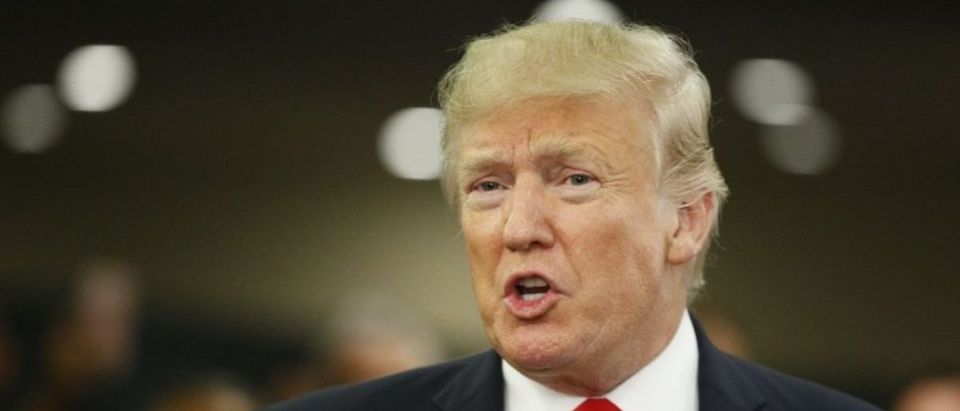During a heated primary season Never-Trumpers and Republican party loyalists warned that if Donald Trump were elected president it would mark the beginning of the end of the Grand Old Party. At the time such sentiments seemed like campaign scare tactics, but now it turns out the Never-Trumpers and party apartachiks were correct, with one important caveat: the Opportunist-in-Chief may simultaneously be weakening the death-grip both parties once held on the American people.
The shiftiness of POTUS’s own past political allegiances suggest the remarkable looseness of his ideological mooring. Since the late 1980s Trump has switched political party affiliations at least five times according to The Washington Times. As recently as August 2001 he was registered as a Democrat, according to Politifact.com, and chose “no affiliation” (Independent) as recently as December 2011. On the stump Jeb Bush repeatedly reminded voters that his opponent had been a Democrat longer than he had been a Republican, a charge which should have proved ultimately damning in a partisan primary, but wasn’t.
Trump’s frustration with the party whose nomination he secured despite fierce establishment opposition may represent the most prominent defection from party lines, though it is far from the only one. The GOP itself has splintered from within, balkanizing into the Tea Party, and Freedom Caucus, and the Liberty Caucus, among others. Trump didn’t create these factions, but he fueled their rise. Even campaign architect Steve Bannon predicted “civil war” within the Republican Party by February of 2018 as Congress wrangles with the President’s controversial DACA decision.
Bannon and Trump made draining the swamp a key plank in their winning platform in 2016, but few who voted for the Trump-Pence ticket truly expected that draining would be achieved by turning the party faithful against one another from within— the definition of civil war.
In this way and in others the old American adage proves true: the President really is a reflection of the people who elected him. In 2014 the Pew Research Center reported that 39% of American voters now identify themselves as Independent, dwarfing the percentage of self-identified Democrats (32%) and Republicans (23%.) A near-majority of the nation’s registered voters now follow the Groucho Marx school of politics, refusing to join any club that would have them as a member.
In his influential book Bowling Alone sociologist Robert Putnam documents an America impatient with traditional organizations, clubs, and memberships, a loosening of affiliations especially prevalent among younger voters. With Congressional approval ratings at 20% in recent Gallup polls, few Americans want to be associated with straitjacket political identities they see as outdated, ineffectual, and uncool. As Putnam and others have documented Gen X and Gen Y like to keep things noncommittal, flexible, free, and fluid—ironically like the Twitter-loving loose-cannon president a majority of them reject.
The through-the-window images snapped recently of Trump shaking hands and yucking it up with Democrat Chuck Schumer over a debt ceiling deal done with Dems while leaving Paul Ryan and Mitch McConnell in the cold serves as visual reminder of an untethered president whose larger-than-life personality stands to weaken the grip of both parties. For those who celebrate political pluralism and lament the iron hold of the two-party system in these United States, the advent of Trump’s post-partisan politics may well represent a transcendent breakthrough. When Independents and swing voters elected a relativistic businessman of fluid morals and mercurial politics they, in effect, elected a political sharpshooter, if not political assassin, and tasked him, tacitly at least, with a historical mission: kill or at least mortally wound the traditional two-party system.
In that way Donald Trump has not failed them.
Zachary Michael Jack teaches in the Master of Leadership Studies program at North Central College in Naperville, Illinois. A scholar of campaign narratives and a national political commentator, he is also the author of the political novel Corn Poll and the presidential biography The Green Roosevelt, among others.


